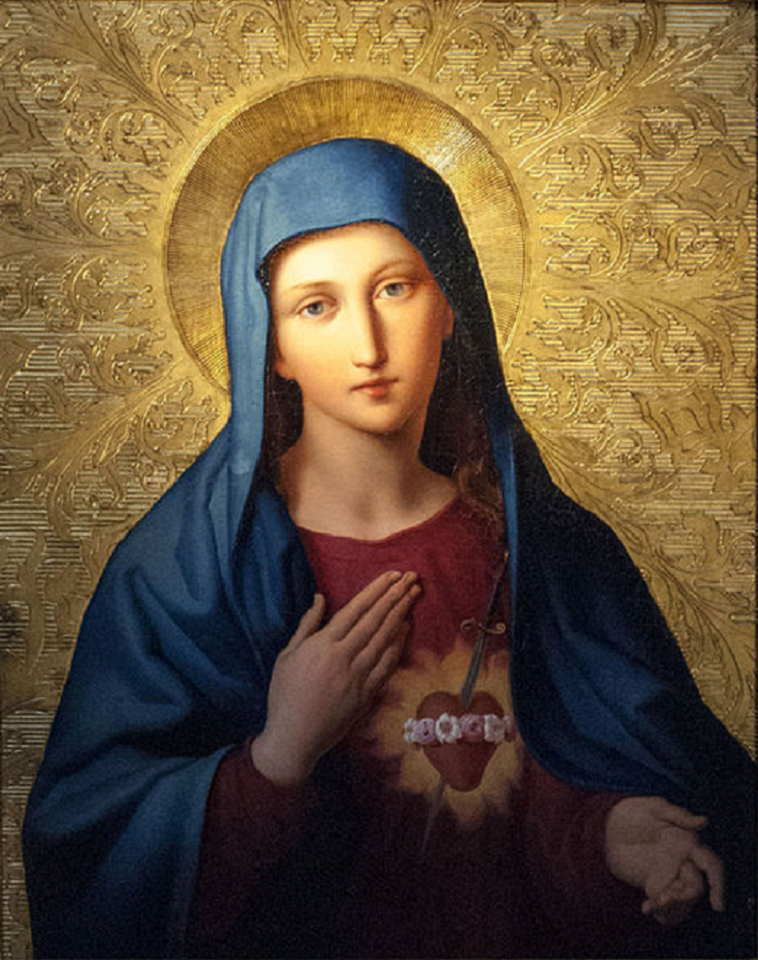The Immaculate Heart of Mary.
Artist: Leopold Kupelwieser (1796–1862).
Photo: 22 September 2013.
Source: Own work.
Author: Diana Ringo
(Wikimedia Commons)
Text from The Saint Andrew Daily Missal,
unless stated otherwise.
Local Feasts.
The Most Pure Heart Of The Blessed Virgin Mary.
Feast Day Saturday Within The Octave Of The Sacred Heart Of Jesus.
White Vestments.
These are the characteristics of The Most Pure Heart of Our Blessed Lady, which we set forth from the Texts of The Mass:
1. All her holiness proceeds from her heart (Introit);
2. Her grief, when she lost The Child Jesus in the Temple (Gospel);
3. Her heart is filled with the love of God (Epistle, Secret, Communion);
4. Mary's heart is pure, therefore it is pleasing to God (Collect, Gradual);
5. Her heart is courageous (Offertory);
6. Mary's intercession (Postcommunion).
Mass: Omnis glória.
Credo.
Credo.
Preface: Of The Blessed Virgin Mary (Et te in festivitáte).
The following Text is from Wikipedia - the free encyclopædia,
unless stated otherwise.
Pope Pius XII instituted The Feast of The Immaculate Heart of Mary in 1944, to be Celebrated on 22 August,[13] coinciding with the Traditional Octave Day of The Assumption.[14]
In 1969, Pope Paul VI moved the Celebration of The Immaculate Heart of Mary to the Saturday, immediately after The Solemnity of The Sacred Heart of Jesus. This means in practice that it is now held on The Third Saturday after Pentecost.[15]



ReplyDeleteAs usual, Zephyrinus shows an uncanny prescience: we have a print of this beautiful image of the Immaculate Heart framed in our home: But until now, I did not know the artist’s name: Leon Kupelwieser.
Apparently, Kupelwieser Became a very successful established artist-painter and a teacher at the Academy of Fine Arts in Vienna. He spent the last 10 years or so of his short life on religious subjects and painting altarpieces many of which survive today. -Note by Dante p
So pleased, Dante P, that this Article was of interest to you.
DeleteThank You, also, for the update on the Artist's life history.